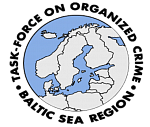Comment by Foreign Ministry Spokeswoman Maria Zakharova on the OSCE ODIHR report
We noted the recent ODIHR “Interim Report on reported violations of international humanitarian law and international human rights law in Ukraine.”
We found no surprises. The OSCE Office for Democratic Institutions and Human Rights (ODIHR) and its Director Matteo Mecacci again showed not only a reluctance to grapple with the existing realities but also a lack of understanding of their own powers.
The document is largely a compilation of excerpts from reports by different UN structures, on which we commented in different formats. The interviews with almost 50 unnamed “eye witnesses” are beneath criticism, considering that some of them come from word of mouth and have been retold at second or even third hand.
Respect for the international audience demands that it be first-hand information, but ODIHR apparently has a problem with getting it, and this is not the first time. It is enough to mention the numerous citations of news reports of such news agencies and media as the CNN, BBC, the Associated Press and The Guardian. Even the Western press has repeatedly pointed out that their editorial policy is politicised and biased. What about citations from “investigations” by Human Rights Watch, one of the groups that released reports on the “atrocities” committed by the Russian military in Bucha, which were almost instantly exposed everywhere as fakes? The document is full of such insinuations.
At the same time, ODIHR is openly playing up to Ukrainian nationalists and neo-Nazis by calling the UPA (the Ukrainian Insurgent Army), recognised as criminal by the Nuremberg Trials, “the Ukrainian Patriotic Army.” In this context, we were not surprised that the report expressed concern over the potential designation of the Azov battalion as a terrorist organisation by the Supreme Court of the Russian Federation, in which case its members will lose the status of combatants.
Along the same lines are the attempts by ODIHR, which is not authorised to gather testimony on violations of international humanitarian law, to hold Russia responsible for the events in Bucha and the attacks on the Drama Theatre and the maternity hospital in Mariupol, to name a few. It is revealing that only isolated comments are addressed to the Kiev regime, in part, over the numerous cases of torture of Russian soldiers. The report says almost nothing about the ban on the activities of political parties in Ukraine, the arrest and disappearance of pro-Russia activists, and the suppression of the property and language rights of the Ukrainian people.
We must note with growing disappointment that ODIHR leadership is slipping into the same Russophobic habits despite their mandate, thereby discrediting not only the executive agency of the OSCE but the organisation as a whole.

